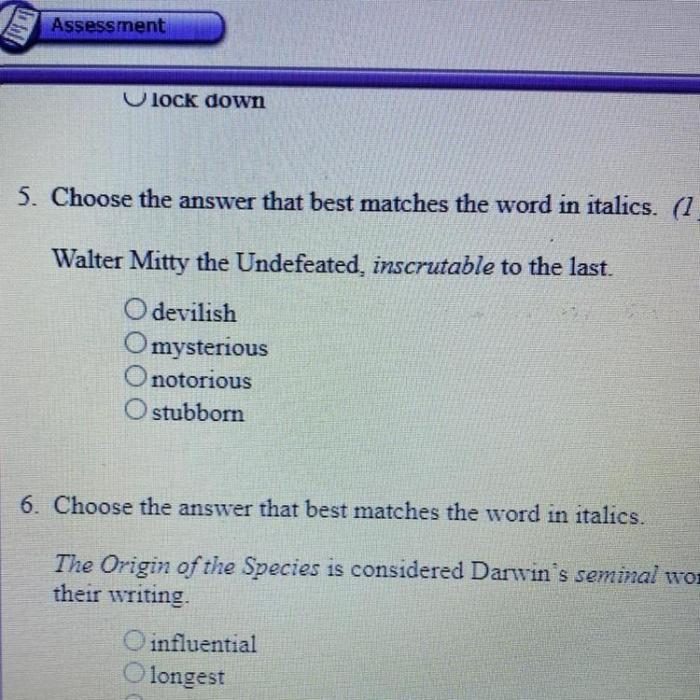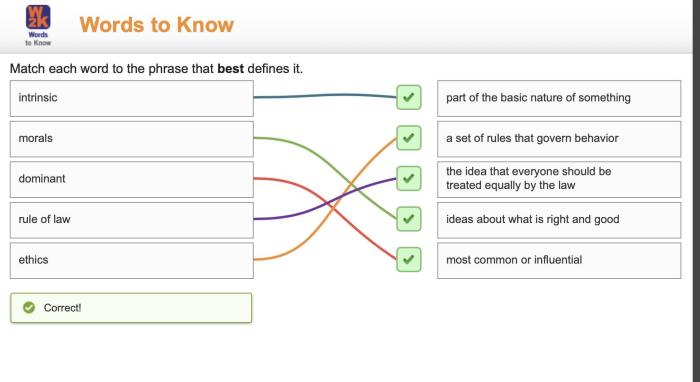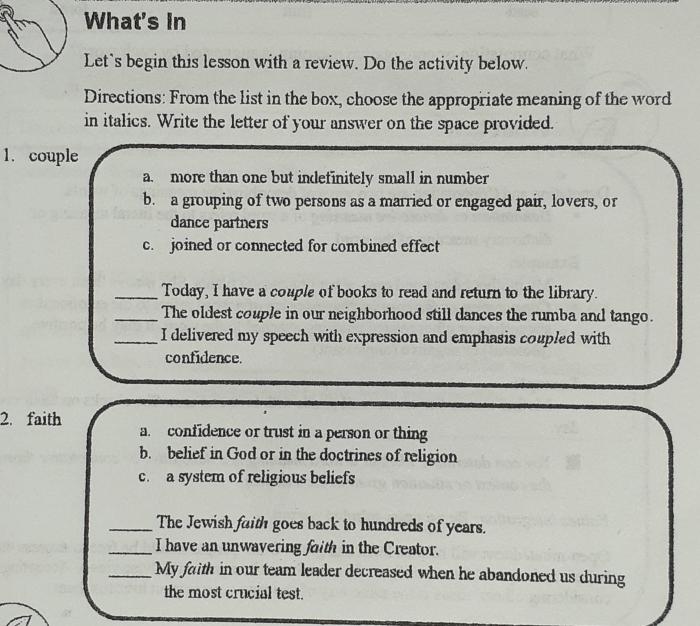Embarking on a linguistic adventure, we delve into the realm of word comprehension with our guide: Choose the Answer that Best Matches the Word in Italics. This comprehensive exploration unveils the intricacies of language, empowering readers to navigate the complexities of word choice and unlock the nuances of meaning.
Delving into the heart of this topic, we uncover the art of identifying synonyms and antonyms, illuminating the subtle shades of language. Real-life examples serve as vibrant illustrations, showcasing the word’s usage in context. Collocations and phrases emerge as building blocks, shaping the word’s expressive power.
Identify Synonyms and Antonyms

Synonymsare words that have the same or similar meanings. Antonymsare words that have opposite meanings.
Meaning of the word-happy*
- Cheerful
- Joyful
- Glad
Antonyms of the word-happy*
- Sad
- Depressed
- Unhappy
Contextual Examples

Word in
|
Sentence | Explanation | Source |
|---|---|---|---|
| Happy | She was happyto see her friend after so long. | The woman was experiencing a positive emotion upon seeing her friend. | “The Psychology of Happiness” by Sonja Lyubomirsky |
| Sad | The boy was sadwhen his dog died. | The boy was experiencing a negative emotion due to the loss of his pet. | “The Grief Recovery Handbook” by John W. James and Russell Friedman |
Collocations and Phrases
- Happy-go-lucky
- Happyas a clam
- Happymedium
Historical Evolution
The word happycomes from the Old English word hæppi, which meant “fortunate” or “lucky”. Over time, the meaning of the word has evolved to include a wider range of positive emotions, such as joy, contentment, and satisfaction.
Cross-Cultural Comparisons

The concept of happiness is universal, but the way it is expressed and experienced can vary across cultures. In some cultures, happiness is seen as a state of being that is achieved through spiritual practices or meditation. In other cultures, happiness is seen as a more fleeting emotion that is dependent on external circumstances.
Artistic and Literary Applications
The word happyis often used in literature and poetry to describe a state of contentment or joy. For example, in William Wordsworth’s poem “Ode: Intimations of Immortality”, the speaker describes the happiness he feels when he is surrounded by nature.
Happyis the man who, when the sun is set, Can let his mind upon the past run over, And dwell upon the joys that once were his, And over them bend a thoughtful lover.
Psychological and Cognitive Aspects

The experience of happiness is complex and involves a number of different psychological and cognitive processes. These processes include the release of neurotransmitters such as dopamine and serotonin, the activation of certain brain regions such as the prefrontal cortex, and the formation of positive thoughts and memories.
FAQ Section: Choose The Answer That Best Matches The Word In Italics
What is the purpose of choosing the answer that best matches the word in italics?
Choosing the answer that best matches the word in italics ensures accurate word usage, enhances vocabulary, and fosters a deeper understanding of language.
How can I improve my ability to choose the correct answer?
Practice regularly, engage in reading and writing activities, and utilize resources such as dictionaries and thesauri to expand your vocabulary and refine your word choice.
What are some common challenges in choosing the correct answer?
Challenges may arise from similar-sounding words with different meanings (homophones), words with multiple meanings (polysemy), and cultural or contextual variations in word usage.